Travel Insurance
100K+
Insured
450+
clients
4.9
Rating
100% Bootstraped
company
 Get a free review of your
Get a free review of your
policy today
We respect your privacy

Travel insurance comes with a lot of power packed features such as hospitalization cover, dental cover, reimbursement in case of loss of passports, tickets, checked-in baggage cover, cancellation of flight, hotel booking cover, delayed flight, missed connection, home contents cover, pet cover, repatriation cover etc. In addition to these there are other additional benefits which can be availed in travel insurance on payment of required premium. These add-ons include automated extension of the travel period, family plan, worldwide cashless facility, emergency cash, emergency ambulance cover, family ticket cover, cover for backpackers and solo travelers and roadside assistance.

Travel insurance is one of the sought after insurance products while traveling; particularly to a foreign location. This is due to the features of the product which includes health cover, dental cover and other support while traveling. The major benefits of travel insurance include affordable health and dental cover, personal liability coverage, legal expenses cover, reimbursement of personal belongings and cancellations and cashless hospitalization. On the other hand the major limitations of travel insurance include few network hospitals to avail cashless claim settlement facility, health insurance cover only for the travel period, limited coverage for pre-existing diseases etc. Let us understand in detail the benefits and limitations of a travel insurance policy:-
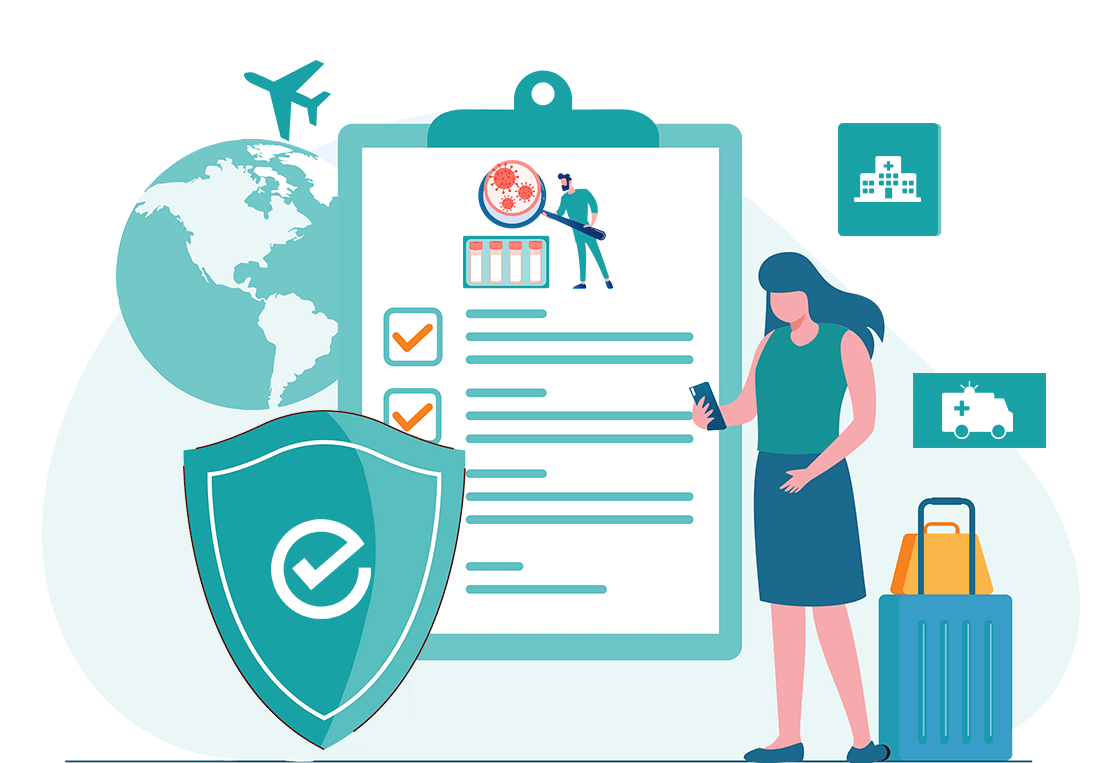
What is Travel Insurance?
So if you have a health insurance policy in India you could claim for any hospitalization anywhere in India, but while traveling abroad the same policy might not cover everything. Then it would be advisable to take a travel insurance plan that could cover all your medical expenses in a foreign location. The other advantage of taking a travel insurance policy instead of a health insurance plan is that it is quite cheaper. A travel insurance plan is 10X times cheaper than a health insurance plan in India whereas it would be more than 100X times cheaper compared to the health insurance plan abroad.
Readmore

Travel insurance can broadly be
divided into 3 types
based on the location of travel,
scope of geographical coverage
and duration of travel.
Automated extension
Travel insurance plan can be extended in case of a medical emergency and evacuation or delay of a common carrier up to 30 days after getting necessary approvals from the insurance company. For instance, let us assume that Mr. A was traveling in Europe and during his stay in a hotel he fell ill and was admitted to the hospital. His travel insurance policy was due for renewal and he was not in a position to renew the policy. His health condition required him to be evacuated to a nearby hospital for advanced treatment. The travel insurance plan can be extended for up to 30 days in this case after getting approval from the insurance company. Travel insurance policy would expire on the last day and needs approval from the competent authorities to extend for a certain period of time. In another instance, let us assume that you have planned to return to India and your flight gets delayed due to bad weather. In such situations you can request for the extension of travel insurance policy for up to 7 days which could be granted by the insurance company paving way for you to utilize travel insurance coverage during your travel period.
Worldwide cashless facility
Travel insurance comes with the additional benefit of worldwide cashless facility in which the insured can avail cashless claim settlement facility in any of the hospitals abroad. The cashless claim settlement facility is available only for the network hospitals which are tied up with the insurance company. To avail the list of cashless hospitals in travel insurance please click on this link. This is the most important facility in travel insurance policy as it would be difficult to spend in dollars for medical expenses when people would already be traveling on a budget. Moreover one would take travel insurance to cover such unforeseen events and would not carry the amount that would be required in case of a hospitalization. Even a simple stomach upset can set you back by several hundred dollars. For this it is important to check with the insurance company if there are any cashless hospitals in the area you intend to travel to. Higher the number of cashless hospitals, better it would be in case of claim settlement.
Adventure Cover
Travel without adventure would not be fun for many of us, but the traditional travel insurance plans do not cover the losses from deliberate engagement in adventurous activities. So an add-on plan has been introduced which covers the adventurous activities of the insured while traveling. For example, the plan covers every possible mishappening while performing water, mountain, racing, or any other adventure sports. The policy covers the death of the insured or permanent total disability while engaging in any adventures during traveling. The add-on also includes accidental hospitalization up to a certain amount resulting from such adventurous activities. It is to be noted that this add-on only covers the injuries arising out of adventurous sports and doesn't cover the injuries caused while performing adventurous sports under the influence of intoxicants.
Family Ticket Coverage
Under this benefit, if a certified medical practitioner recommends that the insured should be accompanied by an immediate family member during the hospitalization period, then the travel insurance plan would cover the cost of one person to travel to the location of the insured in economy class in a flight. For instance, let us assume that Mrs. Dia was traveling to France on a business trip and was hospitalized due to a minor heart attack. The treating doctors have recommended that the insured can be accompanied by an immediate family member; in such cases the travel insurance plan would provide the one way economy class ticket to the immediate family member to visit the ailing insured during their hospitalization period.
Solo Traveler Cover
Solo travel can be all fun until you experience an unfortunate event such as loss of baggage including the documents and personal belongings. Under this section, the plan offers emergency travel assistance of up to Rs.1 Lakh abroad and Rs.50k in India - this money is to be used to return to your destination. In addition to this, the plan also provides for room rent accommodation in case of hospitalization which also includes the ICU rent. The plan also covers the instant blocking of credit or debit card in case of theft or unfortunate event.
Family Plan
Travel insurance can be given on a family floater basis in which the entire family would be covered under a single travel insurance policy. This makes it easy for the family members to manage their travel insurance policies. Family travel insurance plans generally include self, spouse, 2 dependent children and 2 dependent parents. If all the members in a family are traveling to a common destination, then it would be meaningful to take a single family travel insurance policy with the required coverage. A minimum of 4 members would be covered under the plan and can be extended depending on the number of immediate family members traveling. The advantage of family floater travel insurance plans is that the sum insured would be floating among the insured members which reduces the overall premium outgo. This is similar to the family floater health insurance plans in which the sum insured floats among the insured members. It is important to note that most family travel insurance plans do not cover the pre-existing ailments or adventure sports.
Emergency cash
Emergency cash cover in travel insurance policy provides emergency cash in case of an emergency such as theft, dacoity, loss of wallet etc., which can be used to book flight tickets and pay for alternative accommodation. For instance, let us assume that you are walking at night in New York city and while crossing a lane you were robbed. Now neither do you have cash, nor an identity. In such situations, travel insurance policy helps you with emergency cash which can be used to book return flights or avail hotel accommodation thereby giving you extra time to arrange extra funds. These emergency funds would be given to the insured in good faith and in general do not require any major documentation.
Emergency Ambulance Cover
Travel insurance plan provides emergency ambulance cover to transport the insured from the spot of accident to a nearby hospital. In case of emergencies which require repatriation to India to evacuation to a nearby hospital the travel insurance plan also provides air ambulance cover. This would be useful when you are traveling in an unknown territory and where it would not be possible for the road-borne vehicles to reach. Air ambulances are very common in developed countries and are used to evacuate the injured people from the accident site to the nearby hospitals in a short time.
Backpacker Cover
This add-on covers the backpackers traveling in a foreign location with coverage varying from one insurance company to another. Under this plan, one can avail instant blocking of credit or debit cards thereby eliminating the hassle to coordinate with different banks. The benefit also offers free replacement of PAN cards, and covers the travel and hotel expenses, and temporary replacement of smartphones to provide temporary access in order to reach friends and family. Backpack cover would be very useful to travelers who lose their belongings while on a trip and is also affordable.
Roadside Assistance Cover
Roadside assistance covers the common travel related issues such as vehicle breakdown, flat tyre, battery issues, loss or keys etc. For instance, under this plan you can avail roadside assistance if your vehicle has a discharged or flat battery, including wrong fuel leading to damage of the engine, stolen keys or broken locks by miscreants, assistance over the phone for minor issues which can be handled by the insured, taxi benefit to travel to the location or hotel benefit to book hotel for stay till the vehicle is repaired.
Travel insurance can be taken on an individual basis or as a group. Corporate companies also take travel insurance for their employees when they send them on an official trip to a foreign location. This is very important for the employees as well as the employer as the employees would not be able to adjust the required funds immediately in case of a hospitalization without a travel insurance plan. Companies which provide travel insurance plans to their employees can boost the morale of their employees leading to increased productivity. Once the employees take a travel insurance plan, they would be free of tension related to hospitalization in a foreign country. Readmore
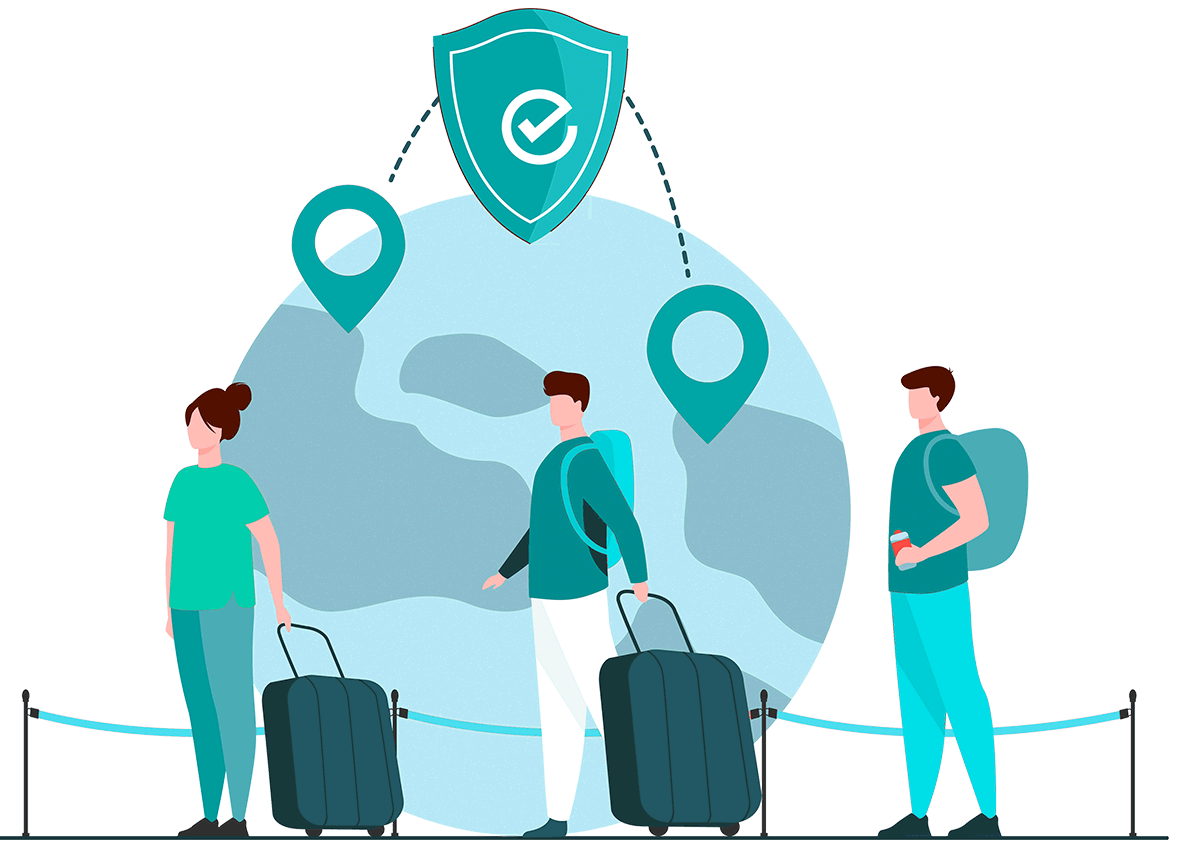
Travel insurance covers medical expenses and other travel-related misfortunes such as loss of luggage, passports, delayed flight, hotel issues, etc. It reimburses the insured in case of any loss during the travel period. The main intention of taking a travel insurance policy is to get adequate health insurance coverage during your travel period in a foreign country, as your local health insurance might not be applicable or sufficient to cover your hospitalization expenses incurred in a foreign country. Travel insurance can be taken for any travel purposes, such as educational, leisure, or business. Hence, it is important to understand the claim settlement process in the case of the travel insurance policy.
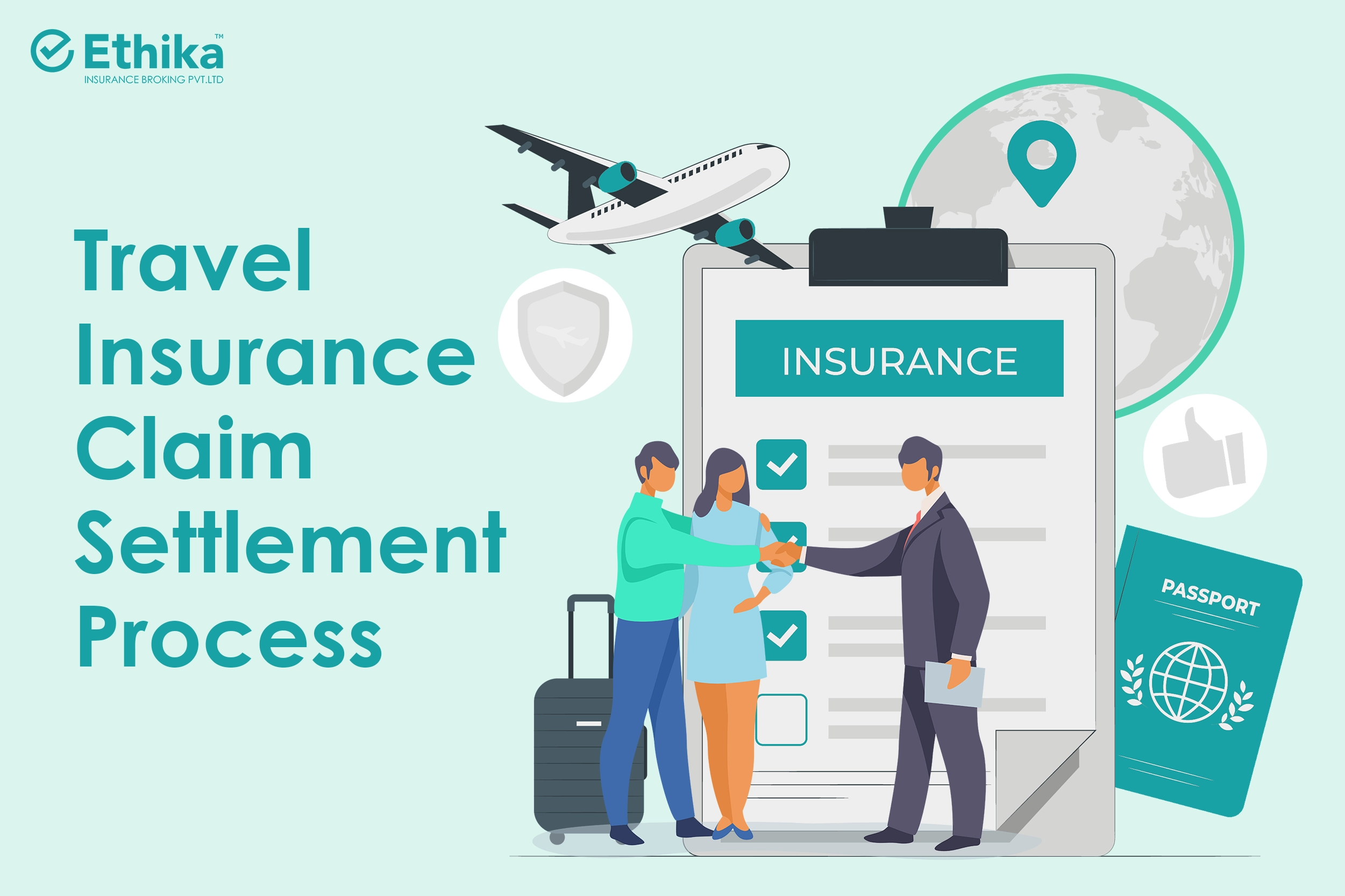
The cashless claim settlement option is available only for the hospitalization expenses incurred during your policy period. The policy period in travel insurance starts with the date of the journey to a foreign country. It ends after reaching India or as per the visa period or the tickets booked for the return period. The travel insurance policy covers hospitalization expenses incurred due to illness, accident, or injury up to the coverage specified in the policy. To avail of the cashless facility, the insured should inform the insurance company immediately regarding the hospitalization arising from illness or disease. The insurance company would then provide the list of cashless hospitals in your nearby area which can be chosen to avail cashew claim settlement facility.
The next step is to visit the hospital offering a cashless claim settlement facility and submit the policy copy at the insurance desk. Hospital staff would then process the claim after consulting the insurance company to verify the authenticity of the policy and get cashless approval for hospitalization. Now, the insurance company would verify the health records of the insured admitted to the hospital and then decide on the admissibility of the claim. Insurers can accept or deny the claim depending on the terms and coverage offered under the policy.
Once the claim is accepted, the hospital will start the treatment cashless. After the treatment, the insurance company would settle the claim amount directly with the hospital, and any amount over and above the claim amount, i.e., deductibles or extra amount, should be settled by the insured directly with the hospital.
In the next step, the hospital will share all the original documents with the insurance company for their record. The insured can then proceed with their travel plan. In case of necessity, the travel insurance plan also offers repatriation services, which are only shifting the patient to India for treatment purposes. A travel insurance policy covers the air ambulance service.
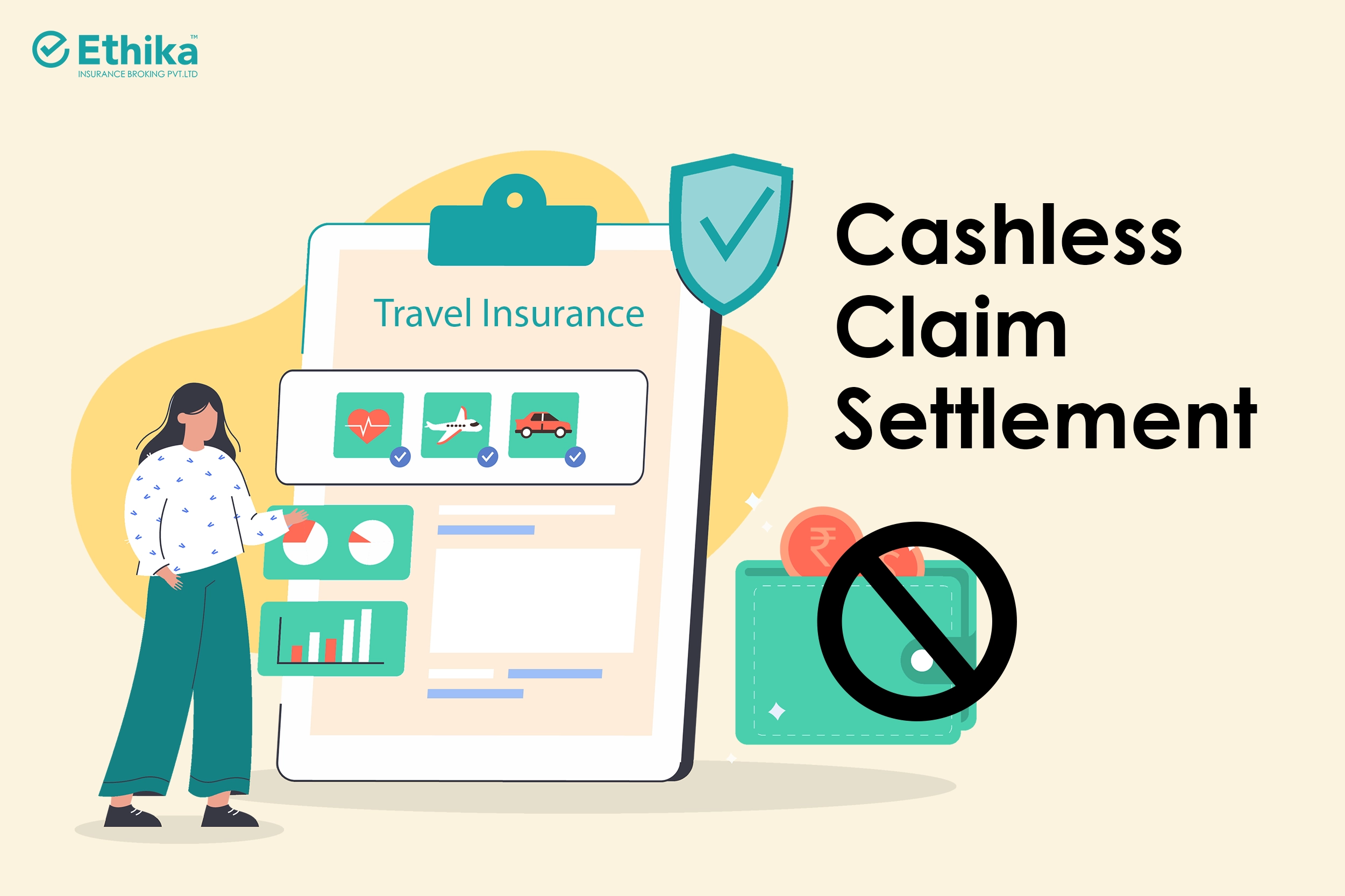
Note: Pre-existing disease-related hospitalization is covered in a travel insurance plan only if it is life-threatening. Click here for more details on PED coverage in travel insurance.
The reimbursement claim settlement option is when the insured customer avails of the hospitalization by paying the required amount and then claims the amount from the insurance company. In reimbursement, the insurance company would process the claim post-discharge and treatment, whereas in cashless mode, the insurance company would process the claim pre-discharge or immediately before discharge. The first step in case of reimbursement claim settlement is to inform the insurance company about the claim. The claim can be intimated before admission or after admission to the hospital. In an emergency, the intimation can be done after discharge or at the time of treatment. Insured need to provide brief details of the hospitalization, such as the reasons for hospitalization, hospital admission, approximate claim amount, etc.
The next step in the process is to avail the treatment from any of the hospitals except those blacklisted. The cost of a trip to hospitals that are blacklisted would not be covered by the policy on travel insurance. Once the claim is intimated to the insurance company, a claim reference number would be generated which can be used to track the claims going further. The claim's reference number can be used to obtain admission to a hospital for treatment. It is important to remember that one should go for claim reimbursement only when the hospital is not a network hospital. If the hospital is a network hospital and you still decide to go for reimbursement without any valid reason, then the insurance company would apply a copay of a certain percentage before settling the claim.
After availing of the treatment and discharge, the insured should collect all the claim-related documents such as discharge vouchers, treatment bills, treating doctor's prescription, and advice for diagnostic tests. In case of baggage loss, flight delay, hotel cancellation, and other travel-related cases, one can claim on a reimbursement basis. One claim number would be enough to claim for more than 1 section under the travel insurance policy. For example, if you want to claim for both flight and hotel cancellations, you can do so by raising one claim id instead of 2 claim ids.
The next step is to submit all the related documents and duly filled claim settlement forms to the insurance company to process the claim. Once the documents are submitted, the insurance company will process the claim within the permissible period and deposit the amount in the policyholder's account. You should submit a canceled cheque with your bank account details for this. The claim's reference number can be used to obtain admission to a hospital for treatment.
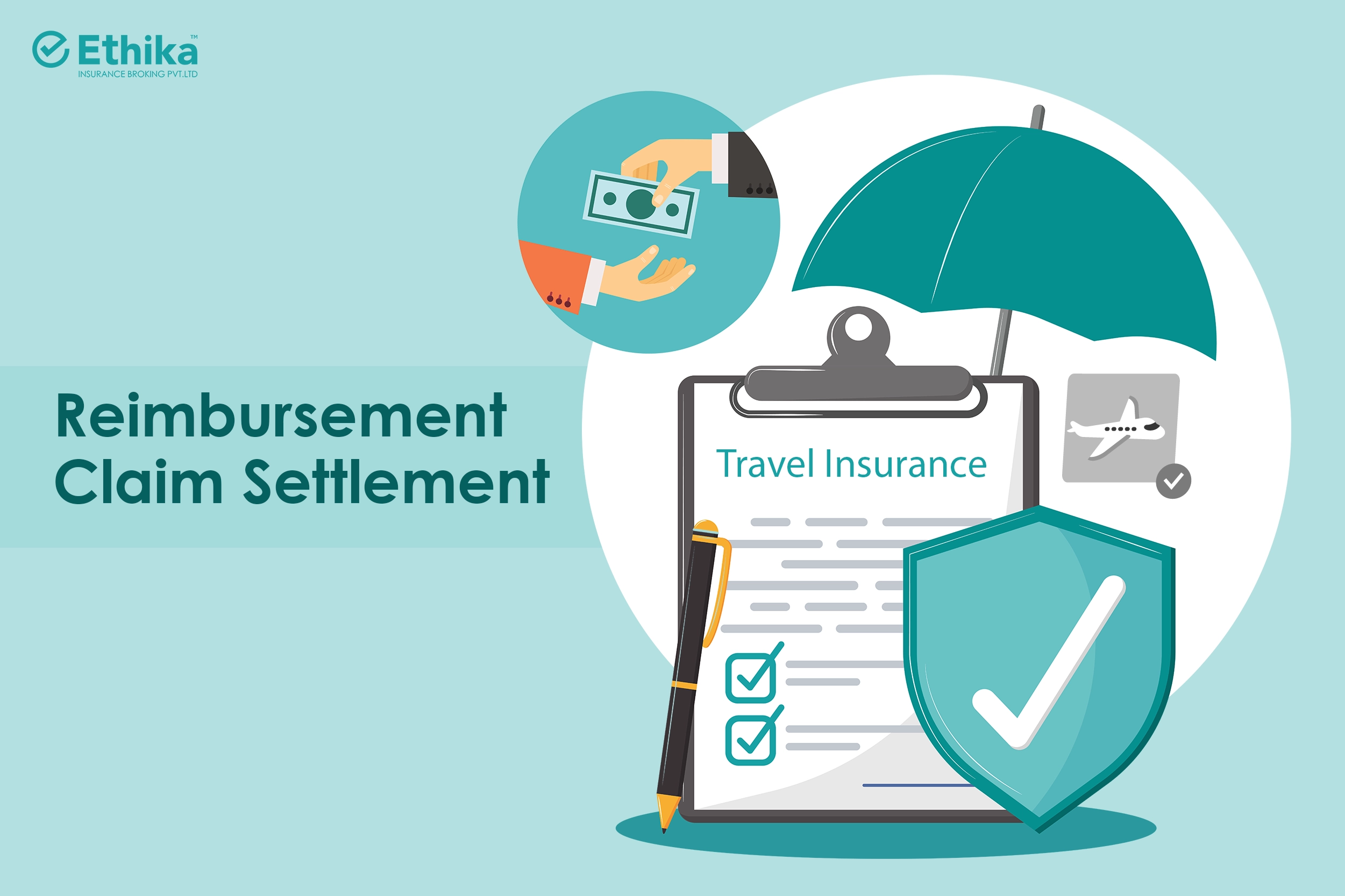
It is important to note that only the hospitalization sections of the policy, including dental treatment, are covered on a cashless & reimbursement basis. In contrast, other sections are covered on a reimbursement basis only.
Cover |
Available |
Preferable |
|---|---|---|
| Medical expenses and medical evacuation including repatriation | Reimbursement & Cashless | Cashless |
| Dental cover | Reimbursement & Cashless | Cashless |
| Personal Accident | Reimbursement | Reimbursement |
| Total loss of checked-in baggage | Reimbursement | Reimbursement |
| Accidental death & disability (Common carrier) | Reimbursement | Reimbursement |
| Emergency cash benefit | Reimbursement & Cashless | Cashless |
| Daily allowance in case of hospitalization | Reimbursement | Reimbursement |
| Compassionate visit | Reimbursement | Reimbursement |
| Return of minor child | Reimbursement | Reimbursement |
| Loss of passport | Reimbursement | Reimbursement |
| Personal Liability | Reimbursement | Reimbursement |
| Hijack distress allowance | Reimbursement | Reimbursement |
| Trip delay | Reimbursement | Reimbursement |
| Hospitalization daily allowance | Reimbursement | Reimbursement |
| Golfer’s Hole-in-one | Reimbursement | Reimbursement |
| Trip Cancellation | Reimbursement | Reimbursement |
| Trip Curtailment | Reimbursement | Reimbursement |
| Delay of checked baggage | Reimbursement | Reimbursement |
| Home Burglary cover | Reimbursement | Reimbursement |
| Missed connection | Reimbursement | Reimbursement |
| Difference in air fare due to delayed or early return | Reimbursement | Reimbursement |
| Bounced Hotel | Reimbursement | Reimbursement |
| Emergency hotel extension | Reimbursement | Reimbursement |